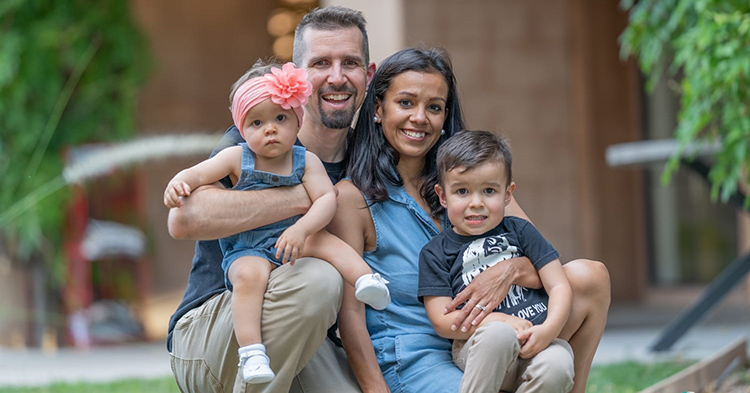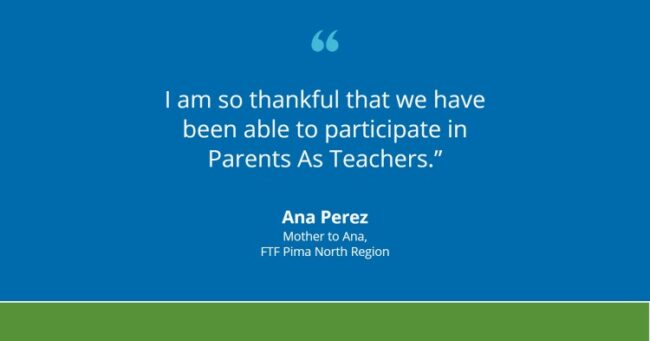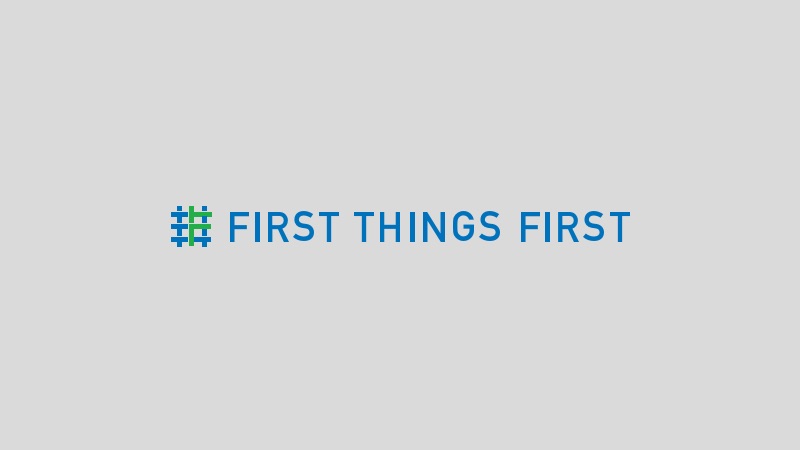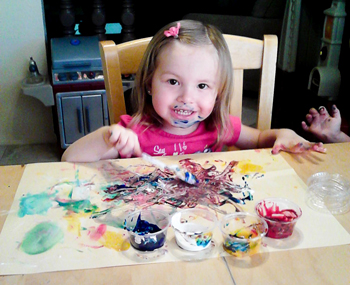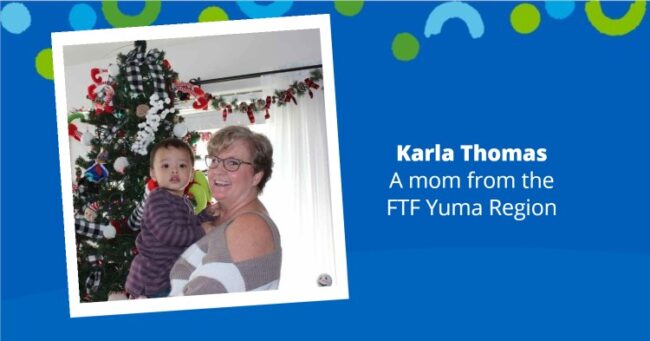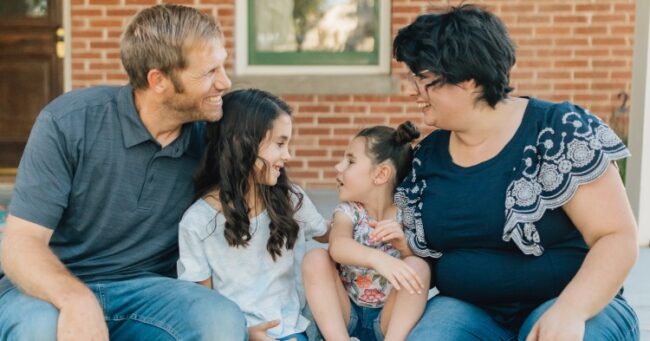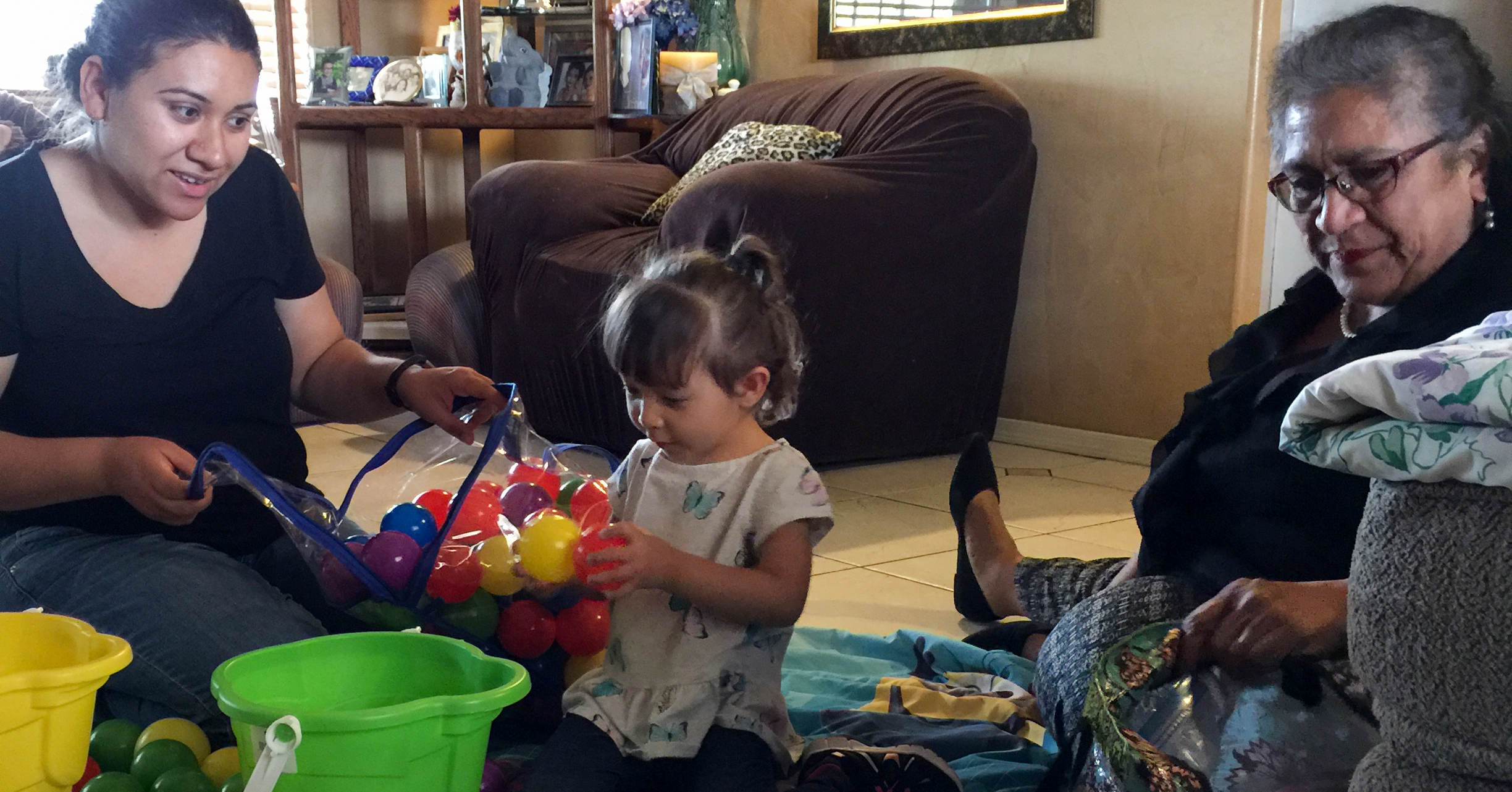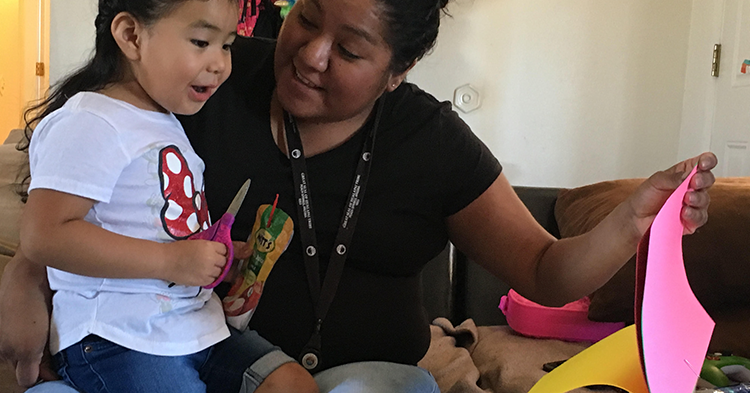
A recently released study shows that the Parents As Teachers (PAT) home visitation program is positively impacting Arizona children and families who participate in the program.
As Arizona’s early childhood agency, First Things First is one of the largest funder of home visitation programs in the state. Parents as Teachers is a voluntary program that offers families information, education and support on parenting, child development and health topics while also assisting with connections to other resources or programs as needed.
“We have an international model that is proving its outcomes with families in Arizona,” said Christine Waldebeiser, FTF program specialist for family support and literacy. “It’s exciting to see these outcomes.”
Partnered with national office
In 2018, FTF partnered with the Parents As Teachers national office and a Tucson-based research, evaluation and consulting firm to conduct a trial focusing on four, FTF-funded PAT sites in Arizona that meet high-quality standards for program implementation fidelity, also known as Blue Ribbon Affiliates.
The study involved 767 primary caregivers and their youngest child, with data collected at multiple points based on key program outcomes. One group of families was assigned to either the PAT intervention group (that receives PAT programming) or a control group (that does not receive PAT, but can access any other services in the community). The study outcome measures evaluated four domains: child development, parenting practices and family functioning, family health and safety and resource usage.
“The findings are all of the things that we already know about home visiting, but it is great to see it reinforced,” Waldebeiser said.
“Specifically in the area of child development, the work that home visitors are doing with families, they are not only providing general information about child development and milestones, they are also providing individualized information based on the specific child served by the program. So families get an individualized snapshot of their child’s development.”
Impact in four key areas
Of the 461 families that completed both baseline and six-month data collection, significant differences were observed between the intervention and control groups. After a year, significant outcomes were sustained for the 435 families that completed six and 12 months in the program. Overall, data suggests PAT home visiting programming is positively impacting participating youth and families in these key areas over time:
- Parenting practices: Significant improvements were found in PAT families’ parenting practice in the areas of parenting efficacy, which describes a parent’s belief in their ability to successfully perform their parenting role and hopefulness.
- Health and safety: Safety practices measured by the Infant Toddler-Home Safety Scale, which measures the caring environment where the infant is being raised, were documented at significantly higher rates for the PAT intervention group than the control group. The same group also had significantly lower signs of depression and parenting stress.
- Child development: The PAT intervention group showed a significant positive impact on children’s talking, listening and understanding skills at six months. The same group of parents also showed significant improvement in reading to their child daily.
FTF continues to explore ways to assess the lasting impact of Parents As Teachers for families and youth through kindergarten and beyond. Currently, 18-month follow-up data is being analyzed and follow-up data when the children reach ages 4-6 is being collected to look at kindergarten readiness.
FTF funds three models of home visitation in 18 regions across Arizona with a total investment of over $14 million annually. Parents as Teachers is one of the models. All of the home visitation programs that FTF funds provide personalized support for expectant parents and parenting families with children from birth to age 5, not yet in kindergarten, who face a variety of risk factors. Services are voluntary, free and primarily provided in the families’ home. Although the models vary, each involves regular home visits administered by trained professionals.
Tucson family helped
For one Tucson family, the Parents as Teachers program introduced the family to activities to support the healthy development of their young daughter. Annette Vea Lopez enrolled in the Casa de los Ninos Parents as Teachers program when her daughter Camila was 1. Although the family was not part of the study, they saw similar results in their family.
“There is no such thing as a perfect parent, but we can always learn and be a little better,” Vea Lopez said in an interview in 2023. “And it’s helpful to have someone who can teach you those skills.”
The home visitor worked with Vea Lopez and Camila throughout the pandemic, offering in-home support as well as referring the family to playgroups and community activities.
“I loved the groups. Camila made friends, and I was able to connect with other parents,” Vea Lopez said.
During home visits, the parent educator introduced the family to activities that support social-emotional development, such as being able to recognize and label emotions. Vea Lopez noticed the impact these activities have had on her daughter.
“I see that Camila’s confidence and self-esteem have grown. She will look in her little mirror and go ‘Look how good I look!’” Vea Lopez said.
The family’s home visitor, Vanessa Villegas, also saw Annette grow throughout the program.
“We would do activities with the little ones to help them express their feelings, and I saw Annette learning to do that, too,” Villegas said in an interview in 2023. “She began to open up to me more and talk about when she was feeling anxious or what she needed support with. A lot of the activities are directed at the kids, but they impact the whole family.”
Vea Lopez agreed.
“This program gave us so many tools, resources, and information to use with all our children, not just Camila,” she said. “During the visits, they would always ask how I was, how I was feeling. They supported us with everything.”
Recognizing strengths of parents
One of the study’s outcomes looked at parenting practices.
“The home visitors are recognizing the strengths of what (the parents) are already doing,” Waldebeiser said. The home visitor is there to acknowledge where the parent is doing a good job and is also able to talk with the parents about parenting challenges.
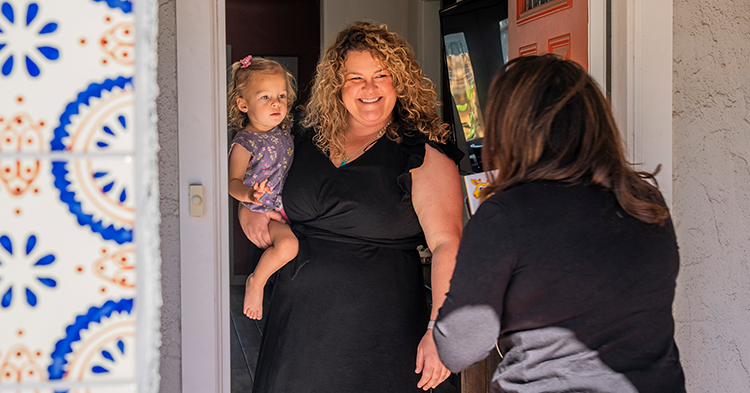 “They’re able to say, ‘You’re struggling with this? I can offer information, and the parent decides whether it will work for their family,” she said.
“They’re able to say, ‘You’re struggling with this? I can offer information, and the parent decides whether it will work for their family,” she said.
That reciprocal relationship between the home visitor and the parents empowers them to help them navigate their challenges.
“Home visitors help build the knowledge and confidence of the parents that they know what’s best for their child,” Waldebeiser said.


